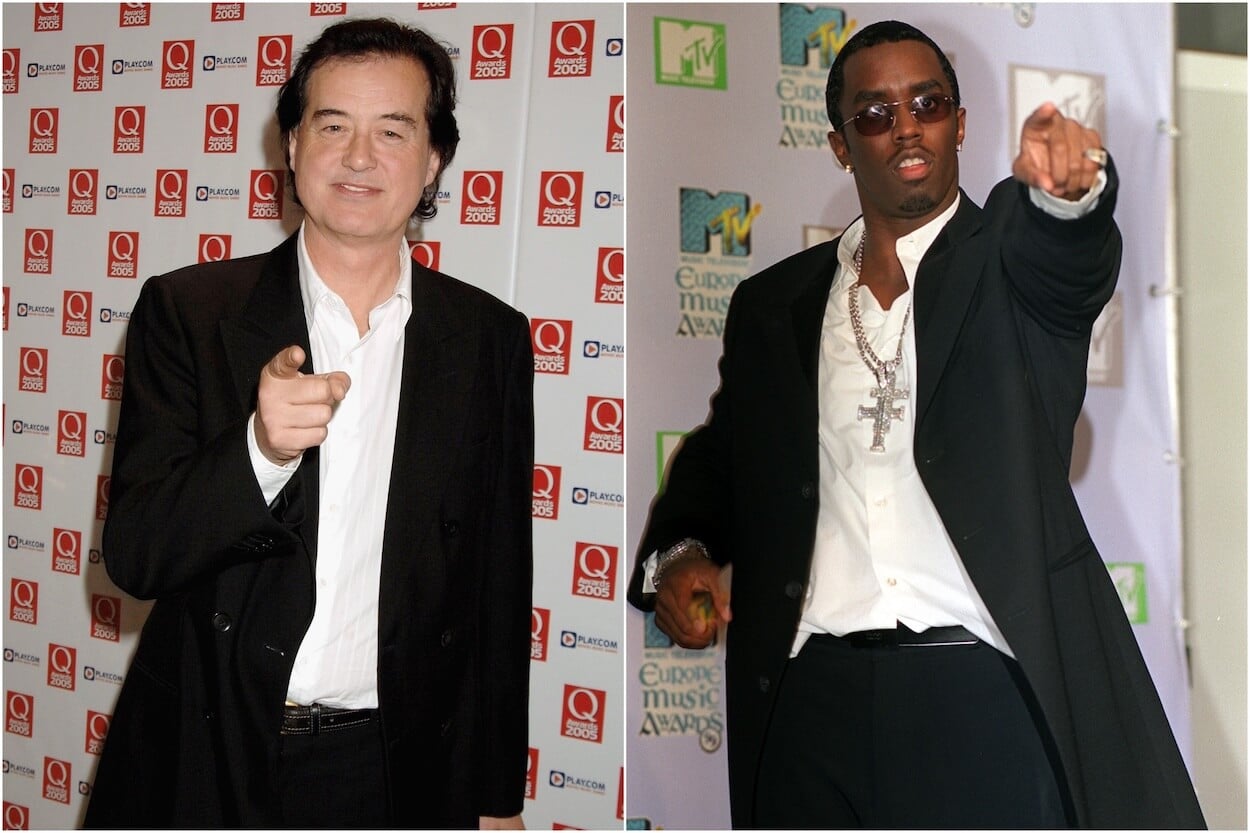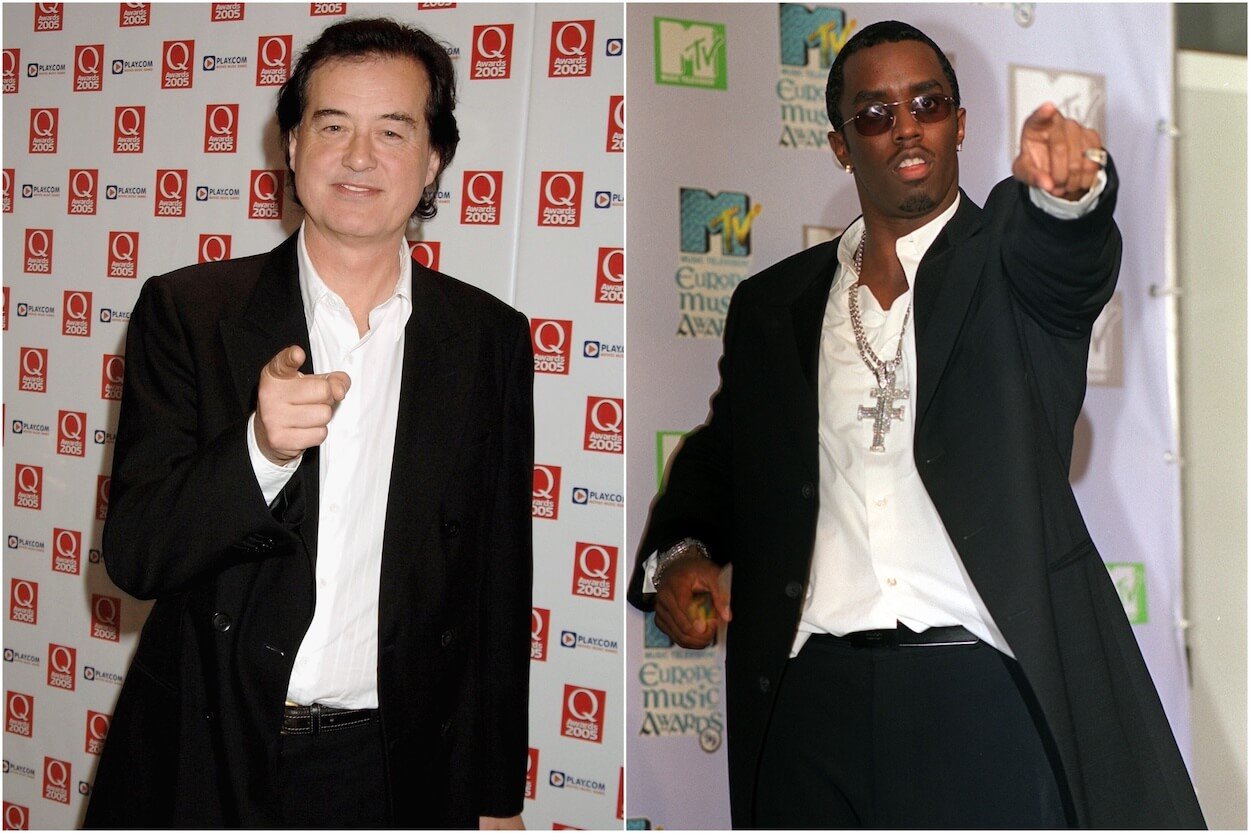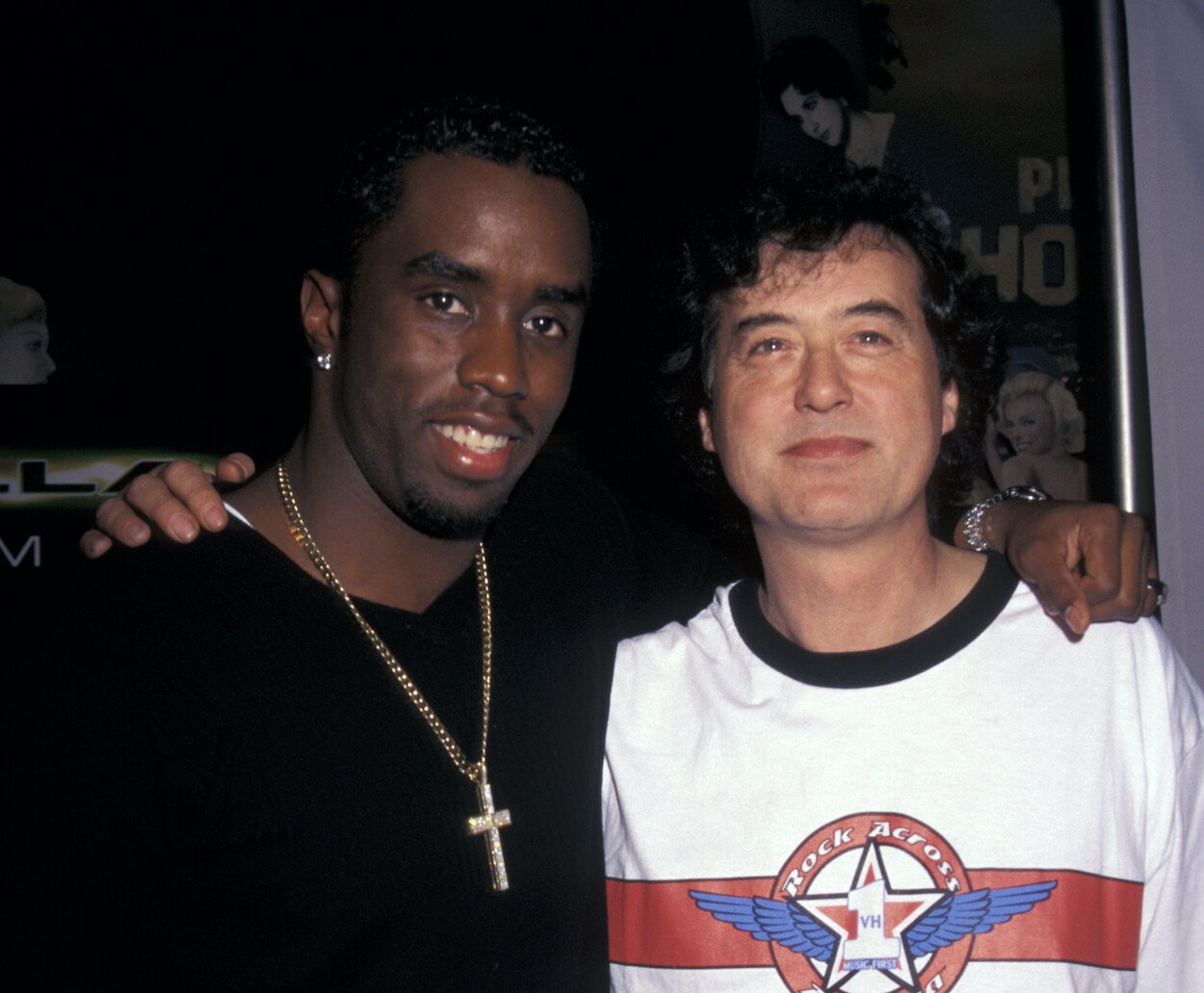
Jimmy Page Let Diddy Have Creative Control on ‘Come With Me,’ and the Rapper’s ‘Fantastic Imagination’ Led to a Huge Hit
Jimmy Page rarely let outsiders enter Led Zeppelin’s creative inner circle. The guitarist said he had a split personality in the band, and both kept nonmembers at bay. Partly out of necessity, the Led Zeppelin founder freely collaborated with many notable musicians after the band folded. One unlikely mashup was Page’s single with Diddy, “Come With Me.” The trained musician said the rapper knew nothing about music, but he still praised the rapper’s “fantastic imagination.”

Jimmy Page said Diddy knew nothing about music, but the rapper had a ‘fantastic imagination’
Page was the creative center of Led Zeppelin. Outside of cover tunes, he, Robert Plant, John Paul Jones, and John Bonham wrote and performed all the songs (with “The Battle of Evermore” being the one exception to the rule).
The guitarist was more open to sharing when he made music after Zep broke up, including Page’s collaboration with Diddy. Led Zeppelin’s first member let the superstar hip-hop mogul take the creative reins for “Come With Me.”
The guitarist proved his tolerance when he and the rapper discussed their collaboration in depth. Page said Diddy knew nothing about music, but the rapper’s response to the musical talk impressed Zeppelin’s founder (per Light & Shade author Brad Tolinski):

“He didn’t want to sample [“Kashmir”] and wanted to know if I would play my guitar parts with a live band. All this sounded good. But it became even more interesting to me when it was explained that he wanted to record his parts in Los Angeles and link to me in London via satellite. He called me up and said that at some point in the song, he wanted to add a modulation. I explained to him that because the guitar is in an open tuning, I prefer to play it in D. Then I suggested that we modulate to E.
“He paused for a moment and said, ‘I don’t know nothing about no D’s and E’s,’ which I thought was a great answer!”
Page praised Diddy again when he heard the rapper’s grandiose plans to add an orchestra. The guitarist helped pioneer overdubbing and stereo effects while in Led Zeppelin. Just listen to the psychedelic freakout from “Whole Lotta Love” for proof. Still, Diddy impressed Page with his skills in both areas on “Come With Me” (per Tolinski):
“After we recorded the track, he told me he wanted to put an orchestra on it, and I said, ‘Great, good luck.’ It turns out he overdubbed two orchestras on it to create this massive stereo effect. I mean, the guy may not know anything about D’s and E’s, but he’s got a fantastic imagination.”
Jimmy Page
The song from the 1998 Godzilla soundtrack introduced Page to a new generation of music fans and became a massive hit on both sides of the Atlantic Ocean.
How did ‘Come With Me’ perform on the charts?
The RIAA certified “Come With Me” as a platinum single just over two months after its release in June 1998. It rose to No. 4 during a 20-week stay on the Billboard chart, reached No. 2 in England (per the Official Charts Company), and earned a nomination for best video from a film at the MTV Video Music Awards (per IMDb).
Page’s words of praise carry a lot of weight. After all, he spent his entire career working with trained musicians, and Diddy still managed to blow him away.
Page’s other post-Led Zeppelin collaborations saw him give up some creative control
Working with Diddy wasn’t the first time Page gave up some creative control.
Page recruited Bad Company singer Paul Rodgers to form The Firm in 1985. The guitarist ceded songwriting duties to Rodgers on several songs and even stood back as his bandmate took a solo on the modestly successful song “Radioactive.”
He shared writing credits on several songs from his only solo album (including one with Plant and two apiece with John Miles and Chris Farlow). Page co-wrote every tune with David Coverdale on their 1993 Coverdale/Page record.
The major difference between Page’s team-up with Diddy and his work with The Firm, his solo record, and Coverdale/Page was Rodgers, Miles, Farlow, and Coverdale were experienced musicians, whereas Diddy knew nothing about music.
Jimmy Page said Diddy didn’t know much about music, but the guitarist let him take creative control on “Come With Me,” and it paid off. The rapper’s creativity helped the song become an international hit and one of the biggest songs with Page’s name attached to it.
For more on the entertainment world and exclusive interviews, subscribe to Showbiz Cheat Sheet’s YouTube channel.


